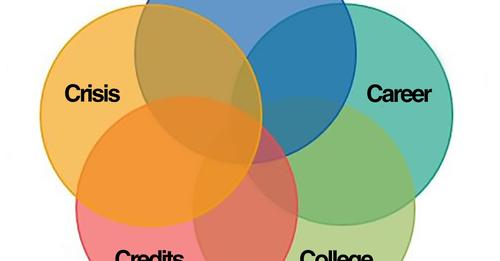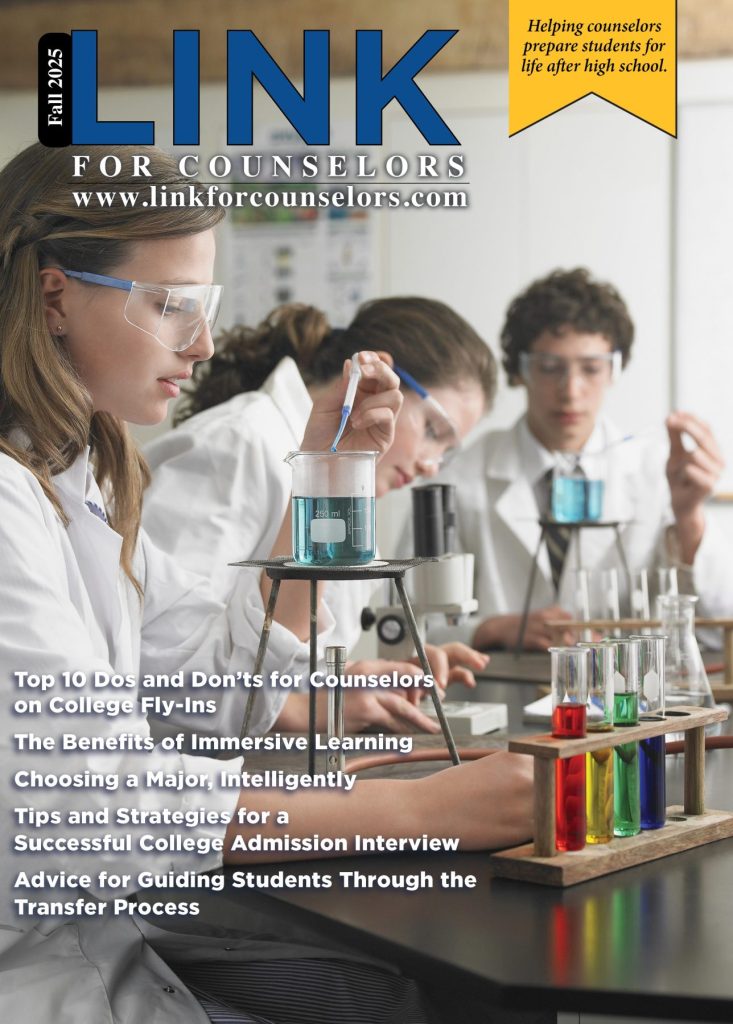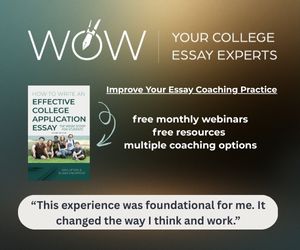Transferring to High School? Remember the Five Cs
This is the time of year when counselor chat rooms are filled with posts like “Thinking about interviewing for a high school counseling position. Thoughts?”
You bet. It’s as easy as remembering the five Cs.
Curriculum Most of the people on hiring committees don’t know that, just like there’s a math curriculum and an English curriculum, high schools are supposed to have a counseling curriculum. Once you shake hands, pass out a one pager (front side only) of your version of a high school counseling curriculum, delineated by grade level outcomes for each of the three key counseling services—social/emotional growth, academic progress, and college/career planning. Add your contact information, and you’re off to a good start. This handout gives you a nice overview to consider.
Career You really need to make sure there’s more to this section than an interest inventory, resume preparation, and interviewing skills. Getting students on job sites, bringing employers into the school, lessons on hot national and regional jobs and soft skills, and a comprehensive aptitude test (by end of tenth grade, so students can plan schedules) are the minimums here—here’s a nice overview to guide you.
College This tends to be the one area most interviewees fluff, simply because their training in this area was just so weak. Most members of hiring committees know nothing about college counseling either, but don’t leave this to chance. View this article and its links, and get a copy of the high school’s profile, which should show where students attend college. Once you get the job, take a brief course that covers these topics in detail, like a new one from NACAC. And seriously—if you don’t think part of your high school job is to help kids with college or college applications, stay where you are.
Credits Counselors often struggle with reviewing students’ progress towards graduation, and with good reason—like schedule changes, this isn’t a counseling task. Still, it ends up in our offices, so finding an effective, efficient way to complete this work is essential. It’s unlikely you’ll get asked about this in an interview, other than the occasional question where you acknowledge this is part of the work—but again, if this isn’t your cup of tea, high school may not be for you.
Crisis Not all of the social/emotional counseling work is on the urgent end, but studies suggest more students need affective support in this post-COVID era. Now is the time to pull out those grad school textbooks on developmental psych, and get current on what other schools are doing in this area. If there’s a community mental health service in the town, it wouldn’t hurt to check in with them and see what they’re offering teens as well. No point in reinventing the wheel.
The Question That Ends the Interview, For Better or Worse If you do interview for a high school position, it’s likely you will get asked what appears to be a pretty basic question—“Why do you want to work at the high school level?” You need to construct an answer that conveys what you hope to give to the high school, and what you’re looking forward to doing, not what you’re tired of in your current job. “I’d love to work with students who speak in full sentences” may be the truth, but that doesn’t give the committee a lot of inspiration. Talk about your interests, your strengths, and what you think high school students need from their counselors. They’re looking for a reason to hire you. Hand it to them.
Patrick O’Connor is a contributing writer to High School Counselor Week and a former High School Counselor at Cranbrook Schools in Bloomfield Hills, Michigan













